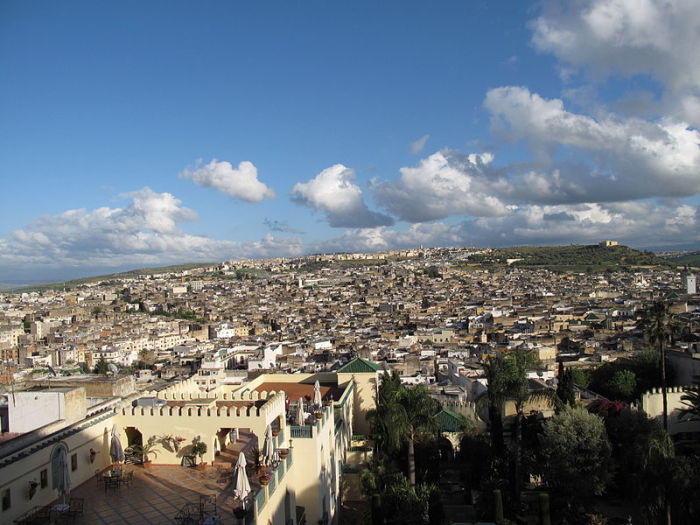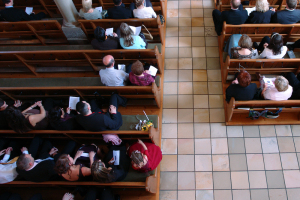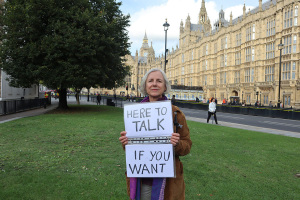Christian Convert From Islam Has 'Proselytism' Conviction Overturned in Morocco
CAIRO, Egypt, February 6, 2014 – An appeals court judge in Morocco today overturned a conviction against a Christian convert from Islam who had been sentenced to 30 months in prison for alleged proselytizing.

The judge in the Court of Appeal in Fez dismissed the case against Mohamed El Baladi, 31, because of lack of evidence, sources close to him said.
"The case has ended," said one source close to El Baladi who requested anonymity. "The file will be closed on the 13th of February after a routine administrative process is finished."
On Aug. 28, in the remote town of Ain Aicha, Taounate Province, 50 miles from Fez, security officials arrested El Baladi for alleged proselytizing of two Muslims after someone complained to police about a conversation he allegedly had with them about his faith. During the arrest, police insulted El Baladi for leaving Islam and tried to force him to reveal names of other
converts to Christianity.
Police eventually raided his home, where they seized several Christian CDs, books and magazines, along with the 5,000 dirhams, sources said.
On Sept. 3, no more than a week after his arrest, a court in Taounate found El Baladi guilty of attempting to incite at least one young Muslim to leave Islam and sentenced him to 30 months in prison, along with fining him 1,500 Moroccan dirhams (US$182). (See Morning Star News, Sept. 13, 2013.)
Human rights advocates said his hearing was irregular at best, with authorities finding El Baladi guilty without any legal representation and handing down the fine exceeding the maximum allowed by law. The penalty for violating Article 220 of Morocco's penal code regarding "proselytism" is six months to three years in prison and a fine of up to 500 dirhams (US$60).
The penal code describes proselytizing as any attempt to stop someone from exercising their religious beliefs or from attending religious services. It is also illegal for anyone to employ "incitements to shake the faith of a Muslim or to convert him to another religion."
Authorities on Sept. 26, 2013, made the unusual decision to release him from prison until his appeal hearing. There were two scheduled court hearings for the appeal, one on Oct. 10, which was postponed, and one scheduled for Dec. 26, when the judge was absent; a previous report from Morocco published by Morning Star News that the court heard arguments on that date was later found to be inaccurate, although long-denied defense arguments were filed and the hearing was rescheduled for today (Feb. 6).
Having a conversation about one's faith is not generally considered proselytizing in Morocco, but sources confirmed reports that El Baladi was set up by an uncle with whom he had a previous dispute. The uncle hired two teenage boys to feign interest in Christianity, and police were on hand to arrest him for proselytizing minors when he met with them a second time (see Morning Star News, Oct. 11, 2013).
Strict interpretation of sharia (Islamic law) condemns apostates from Islam to death, though that is not the case in Morocco. Moreover, converts from Islam in Morocco say the government tends to prosecute more noticeable evangelists. A quiet Christian convert is unlikely to run into problems other than from family, but "active" Christians who attempt to tell others about their faith will likely face harassment from authorities, especially if they live in a rural area or a small city.
Police monitoring of converts, including phone conversations, is common, one convert from Islam said.
The West has generally applauded Morocco's new constitution of 2011, which provides for a fair trial and presumption of innocence until proven guilty for those accused of breaking the law. But a fatwa issued in 2012 by the governmental High Council of Ulemas, the highest religious authority in Morocco that called for the execution of converts, has caused concern among human rights and religious freedom advocates.
Morocco's King Mohammed VI is seen as a moderate, but Islam is the official religion of the state, and the king's titles include, "The Defender of the Faithful." Christians are also suspicious as his government shares power in a coalition that includes the Justice and Development Party, which is considered to have links with the Muslim Brotherhood; the group calls for a society governed by Islam.
On Dec. 28, 2005, Christian convert Jamaa Ait Bakrim was sentenced to 15 years in prison for proselytism and for destroying the goods of others by burning two abandoned telephone poles touching his property.
In March 2010, the government expelled at least 33 Christian foreign residents from the country. Among them were 10 adult Christians, along with their children, who were running The Village of Hope, a foster daycare center for orphans. The foster children were turned over to the care of people they did not know.
In addition to the expulsions, roughly 81 people were declared "persona non grata" for alleged proselytizing.
There are about 8,000 Moroccan Christians out of a population of almost 35 million people, according to the 2012 International Religious Freedom Report of the U.S. Department of State.





























